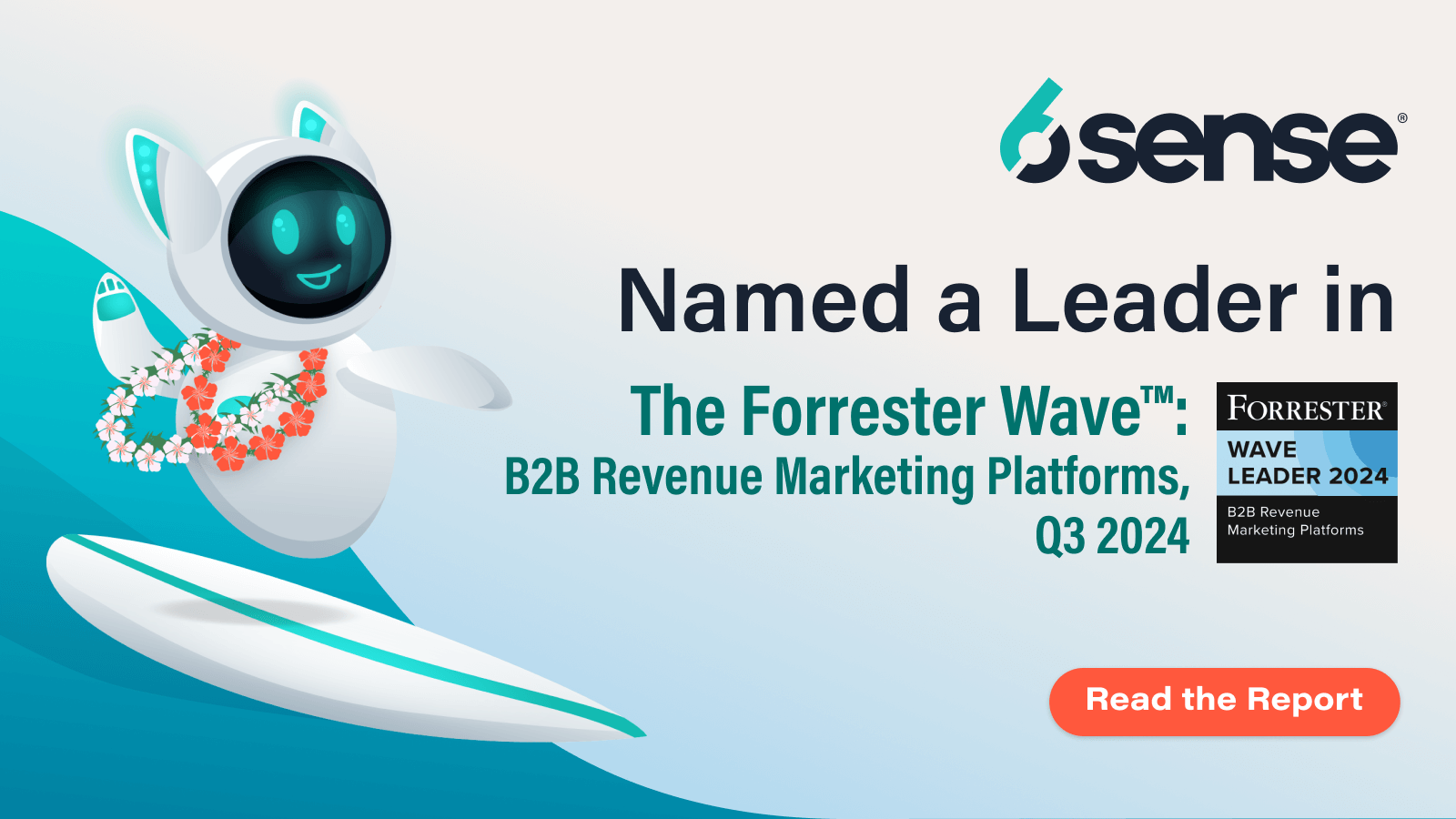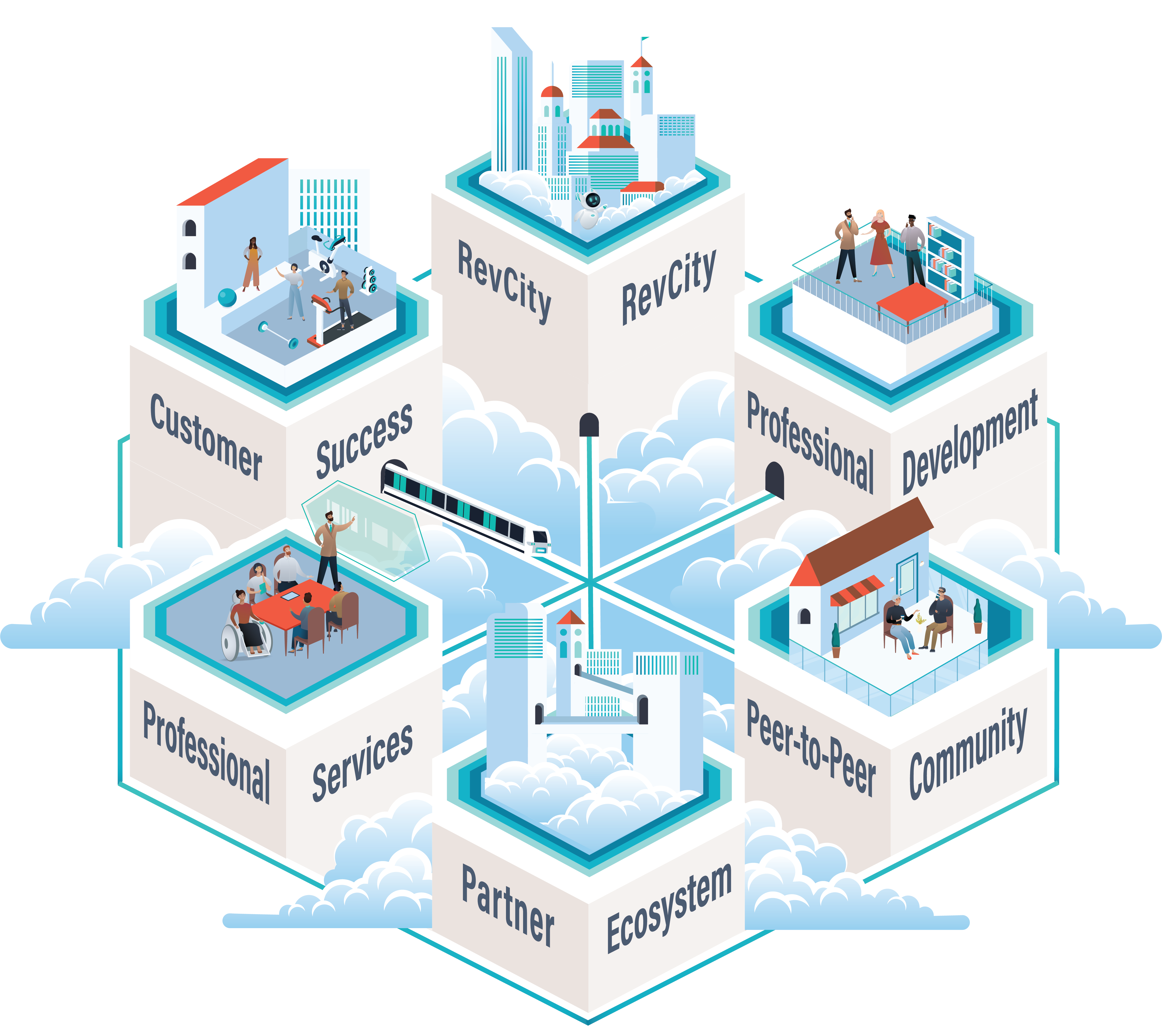In the tech realm, few names evoke as much respect as Guy Kawasaki’s. His rise as a thought leader in the tech and business worlds began with his groundbreaking role as Chief Evangelist at Apple in the ’80s, marketing the Macintosh computer line.
Guy is now Chief Evangelist for Canva, an online graphic design tool. He’s also known for his roles in venture capital and education, and is the creator of the Remarkable People podcast. His new book Think Remarkable: 9 Paths to Transform Your Life and Make a Difference is available now.
Guy recently spoke to Saima Rashid and Adam Kaiser, hosts of 6sense’s Revenue Makers podcast about successful revenue strategies, to share his insights on what it takes to be remarkable. Here’s are highlights from the episode, presented as a Q&A.
(Editor’s Note: There are a few PG-13 swear words in the podcast interview, which are also presented here in the Q&A.)
Podcast highlights:
- How to make the world better by bringing great stuff to market.
- The power of sales evangelism.
- Maintaining success and grace as a leader.
- The Venn diagram of jerks and leaders.
The Desire to Make a Difference
Saima: The principles of growth, grit, and grace, as outlined in your book, are universal. You’ve interviewed hundreds of leaders. What makes a remarkable go-to-market leader?
Guy: Making a difference; that is, making the world a better place. And if you do that, you will be remarkable. One of the ways you make the world a better place is you bring great stuff to market, which is why we’re all here today. So, yeah, it’s about making a difference, making the world a better place.
Recognizing Gold
Saima: How do you synthesize down to what’s the most important when a product is being put out there?
Guy: Well, this is related to the concept of “Guy’s golden touch.” Now, you might think I’m saying that whatever I touch turns to gold. And that’s not at all what I’m saying.
I’m saying: Whatever is gold, Guy touches. If you want to be successful going to market, guess what? Bring good shit to market. It is that simple. That’s 90% of the battle.
So the starting point, I think, is to really make the world a better place. It could be with a computer, it could be with online graphics, it could be with an LLM. But the key is that it’s something that’s great, and then everything else falls into place.
Sales Evangelism
Adam: But it can get so easy to get caught up in, “Did I hit my quota?” It becomes this sort of almost mechanical process. How do I actually take it further and do good?
Guy: I would make the case that evangelism is the purest form of sales. So the difference between run-of-the-mill sales and evangelism is that what you’re selling is good shit.
I think the next step is the difference between an evangelist and, you know, a run-of-the-mill salesperson is that the evangelist is not only interested in himself or herself.
He or she is also interested in the welfare of the customer. So I can tell you that when I tell people to use a Macintosh, I truly do believe that it’s going to make them more creative and productive.
Sell Your Dream, Not Your Quota
Guy: Today, when I tell people to use Canva to democratize design, it’s going to make them a better communicator. So don’t get me wrong — it’s good for me if you use Canva. It was good for me if you use Macintosh. But I truly did believe that it was good for both of us, not just my quota.
One of the things I learned from Steve Jobs is if you get people believing in your dream, selling them a computer is easy. Right? I mean, the hard part is to get people to believe in your dream.
Maintaining Success — and Grace
Saima: In the section of your book around the high road in business, you talk about grace and success. The tech world is a very convoluted, saturated space. We’re all competing with each other. How do you maintain that grace and success?
Guy: Well, I think that grace is the third stage, right? It starts with growth, where you’re now open to learning new ideas and open to changing yourself.
And then you quickly realize that that’s not easy. So it takes grit. And I would say that the third stage of being remarkable is now you realize how fortunate you are, and so you realize that you have a moral obligation to help others. And that is where you separate really remarkable people from people who are not so remarkable.
Open the Door for Others
Guy: I think it’s an absolute core part of your belief that you are successful and you owe it to society to help them.
Because if you are successful — particularly at the individual level — if you are successful, yes, you had growth, yes, you had grit. But I’m telling you that some teacher, some coach, some mentor, some boss, somebody opened the door for you. And because someone opened the door for you, you have a moral obligation to open the door for others.
The Two Kinds of Asshole
Saima: Just one more thing on that thread. So, if there’s a Venn diagram of remarkable leaders and assholes, there will be some overlap. Right?
Guy: Yeah. I was in Silicon Valley and tech for about 40 years, so I have become an expert in assholes. I think that fundamentally there are two kinds of assholes.
So one asshole is the one you may be most familiar with, which is ego-driven. It’s all about me. It’s all about my glorification.
And then there is the mission-driven asshole. The mission-driven asshole wants to improve people’s creativity and productivity, wants to make the world’s best computer, wants to make the world’s best graphic design service. Unfortunately, most people don’t make a distinction between the ego-driven asshole and the mission-driven asshole.
Now, I don’t think anybody is going to debate that Steve Jobs was a mission-driven asshole. I don’t think he was ego-driven. It wasn’t always about him. It was about wanting to make the world’s best computer, and he’s not going to let anybody stand in the way of that.
So if you’re mediocre, he’s going to run you over and run you out. Now, having said all that, I don’t want people to think, so what Guy validated is, you got to be an asshole to be successful. I would make the case that “asshole” is not necessary.
I’ll give you a great example of a person who is absolutely a class act, and that is Melanie Perkins, the CEO of Canva. She’s a mission-driven, wonderful person. So, you don’t need to be an asshole.
More to Learn
Guy has more insights to share. To hear the rest of this podcast, listen here.



